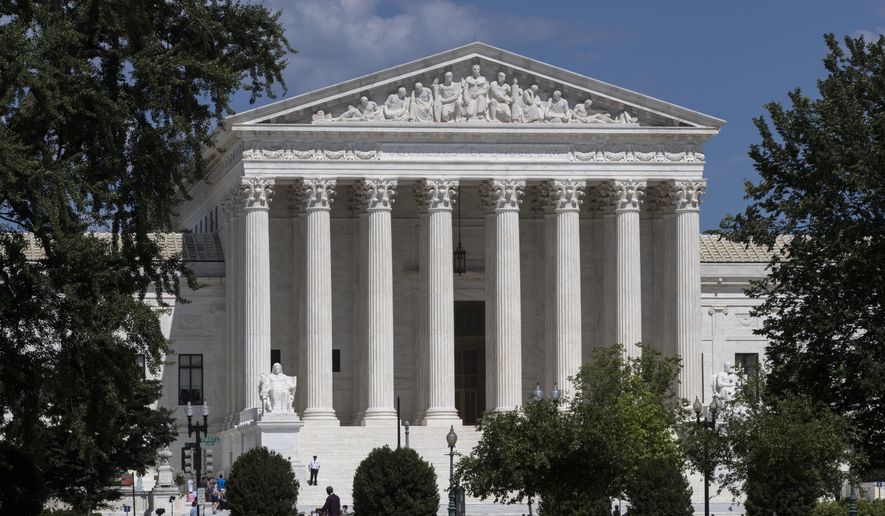The Supreme Court ruled Monday that a police officer could not be personally sued for civil damages over a shooting where he thought the community was endangered by a knife-wielding woman — overturning an appeals court decision.
The Arizona police officer, Andrew Kisela, had shot Amy Hughes four times after she ignored calls from three police officers to drop her weapon, which she held while standing within six feet of her roommate, Sharon Chadwick.
The 9th U.S. Circuit Court of Appeals had ruled the shooting appeared to be extreme and Ms. Hughes, who was seriously injured, could sue, but the Supreme Court reversed the panel and said the officer appears to have acted reasonably.
“This is far from an obvious case in which any competent officer would have known that shooting Hughes to protect Chadwick would violate the Fourth Amendment,” the Supreme Court said in its unsigned opinion Monday.
The justices sent the case back to the 9th Circuit for more action.
Ms. Hughes had been acting erratically, prompting a call to 911 by a bystander about her behavior. Three police officers arrived at the scene, spending roughly a minute there as she approached Ms. Chadwick and stood within 6 feet of her, holding a knife.
The courts have grappled with whether that was a threatening situation.
All three officers had their guns drawn and all three said later they believed Ms. Hughes was a threat to Ms. Chadwick.
The Supreme Court said given most officers would have believed the police conduct was lawful, Officer Kisela has qualified immunity from a civil suit.
The justices also said the 9th Circuit had ignored its own precedent — a 2005 case with a similar line of facts where the officer was found to have used reasonable force and didn’t violate the Fourth Amendment. In that case, a man was wielding a sword and acting erratically as he walked down a neighborhood street, ignoring calls to drop his weapon.
Instead, the 9th Circuit compared the current case to the 1992 Ruby Ridge standoff, when an FBI sniper was found to have used excessive force when he shot at Randy Weaver from more than 200 yards away, as Mr. Weaver was retreating. The Supreme Court, quoting one of the 9th Circuit judges, said the comparison “does not pass the straight-face test.”
“Suffice it to say, a reasonable police officer could miss the connection between the situation confronting the sniper at Ruby Ridge and the situation confronting Kisela in Hughes’ front yard,” the Supreme Court said in Monday’s opinion.
Justice Sonia Sotomayor, who dissented along with Justice Ruth Bader Ginsburg, saw the case differently.
She said Ms. Hughes had the knife down at her side, didn’t commit any illegal act and wasn’t suspected of a crime. She noted the other two police officers didn’t open fire, and one of them testified he had wanted to continue using verbal commands.
Ms. Chadwick later said she didn’t feel threatened by her roommate. She said Ms. Hughes was threatening to hurt Ms. Chadwick’s dog if she didn’t make good on a $20 debt.
“If this account of [Officer] Kisela’s conduct sounds unreasonable, that is because it was,” Justice Sotomayor wrote.
• Alex Swoyer can be reached at aswoyer@washingtontimes.com.




Please read our comment policy before commenting.